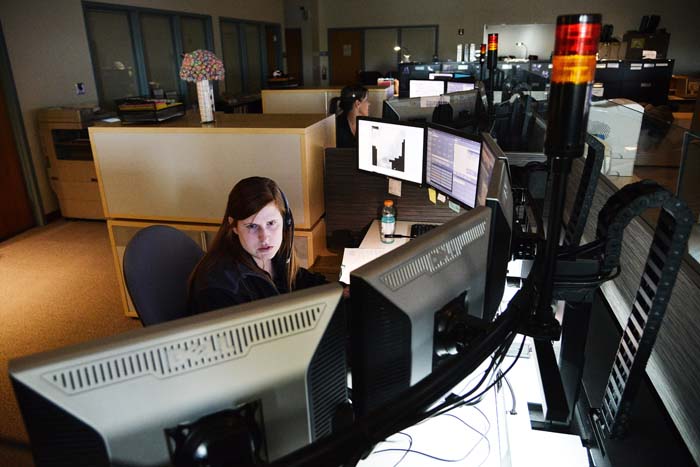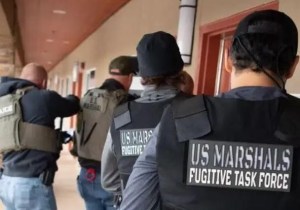Dispatchers on the line for drug bust, other major incidents
Published 11:56 am Wednesday, April 3, 2019

- Umatilla County Sheriff’s Department dispatcher Justine Griffith talks with a caller in 2017 at the Umatilla County Justice Center in Pendleton.
They sit at desks for their entire shift, but Umatilla County Dispatchers become closely familiar with almost every public safety incident in the county.
Trending
Justin Russell, a sergeant with Umatilla County Sheriff’s Office Communications Division, recalled one of their busiest days in recent memory — when local law enforcement enacted Operation Wildfire, a massive drug bust that resulted in nearly 60 arrests.
“There were lots of arrests, and all that was dispatched through here by me and Sgt. (Karen) Primmer,” he said. “We were here for 14 hours and dispatching pretty much solid the whole time.”
As officers from the Blue Mountain Enforcement Narcotics Team and local police contacted people associated with the operation, the dispatch team was back at the office listening and connecting the dots. Each time law enforcement contacted someone to arrest them, dispatchers had to go and physically make sure they had that warrant.
Trending
“We are the piece of the puzzle that has custody of the warrant,” he said. “When they contact somebody, we have to make sure we actually have that warrant.”
Even if they aren’t swamped with calls, dispatchers are constantly thinking on their feet, as they take in 911 calls from 25 different law enforcement and emergency medical agencies around the county.
The dispatch center has 17 full-time employees, as well as three sergeants and a captain. When a call comes in, a dispatcher’s first job is to get the basics of the call — where the call is coming from, the reason for the call, and if there are any weapons involved. They learn police codes and emergency medical terms, and are responsible for getting information to the right parties.
“There’s a lot of moving parts,” Russell said.
The job requires extensive training, but parts of it can only be taught by experience. Dispatchers take non-emergency calls, and learn how to document and enter information into one of the many systems they use. But they also have to talk people through some difficult moments — whether helping them deliver a baby or instructing them in CPR. The emotional component of helping someone through those experiences can take a toll on dispatchers, too.
Jennifer Bostwick has worked as a paramedic for 28 years, and as a dispatcher for seven. The Pendleton native has done that job on rural island communities in Alaska, cities in Texas, and around the state of Oregon. She has been with Umatilla County dispatch since July.
Bostwick said she is most comfortable in emergency medical dispatching, because that’s where her background is.
“EMS, rescue, structure fire calls,” she said. “I feel more comfortable because I’ve been on the ground with those calls. Law enforcement is a newer addition to me, and it’s far more busy.”
She said one feature of this area is the amount of mutual aid available.
“The different departments kind of overlap with each other,” she said. “Here we have Pendleton Police, Hermiston Police, OSP is another layer. That’s different than being on an island.”
Though the dispatchers deal with a range of calls, Russell said there’s always something new coming in.
“Recently we had a plane crash in Hermiston,” he said. “That’s a pretty rare occurrence. We do a lot of training for scenarios like that.”
He said that training helped them act quickly, and get people on the scene within minutes. No one was injured, and everything went well.
Bostwick added that the job takes lots of ongoing training.
“Just today, we were learning how to help people when they’re lost, and they call on 911, how to drop pins,” she said. “We went to a tactical dispatch class last year, and learned from each other.”
“I learn something new every day,” she said.
National Dispatch Week is from April 14 to 20.









